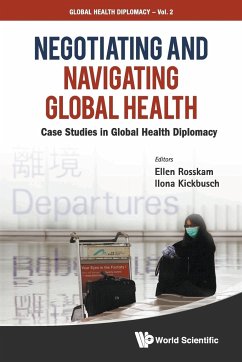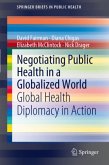Diplomacy is undergoing profound changes in the 21st century, and global health is one of the areas where this is most apparent. The negotiation processes that shape and manage the global policy environment for health are increasingly conducted not only between public health experts representing health ministries of nation states but include many other major players at the national level and in the global arena. These include philanthropists and public-private players. As health moves beyond its purely technical realm to become an ever more critical element in foreign policy, security policy, and trade agreements, new skills are needed to negotiate global regimes, international agreements and treaties, and to maintain relations with a wide range of actors. The intent of this book is to provide learning tools for today's broad group of "new health diplomats" in the landscape of this ever-shifting, complex technical and political arena. The case studies are told as the negotiations were experienced by individuals who participated in the various debates, dialogues, negotiations, or by experts who have studied them. This collection fills an important gap in both knowledge and practice providing insight on how negotiations on global health issues have transpired, the successes, challenges, failures, tools and frameworks for negotiation, mechanisms of policy coherence, ways to achieve global health objectives internationally, and how global health diplomacy used as a foreign policy tool can improve relations between nations.
Hinweis: Dieser Artikel kann nur an eine deutsche Lieferadresse ausgeliefert werden.
Hinweis: Dieser Artikel kann nur an eine deutsche Lieferadresse ausgeliefert werden.








